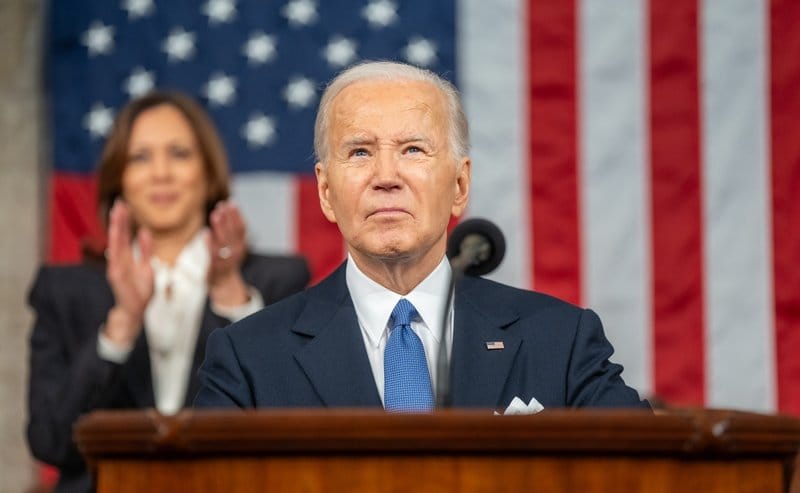
Funding
Objective is to support high-speed internet packages priced at $30 per month.
 Photo of Joe Biden by Adam Schultz
Photo of Joe Biden by Adam Schultz
June 5, 2024 –Fourteen internet service providers are responding to calls from the Biden Administration to fill the funding gap for underserved communities after the conclusion of the Affordable Connectivity Program on June 1.
In the fallout of ACP, President Joe Biden continues to request funding from Congress to continue to program. Meanwhile, service companies across the United States are looking for an alternative solution to continue bringing millions of households high-speed internet access.
According to the White House, there are currently 14 Internet service providers that are working to create more affordable Internet programs to service low income families that were previously subsidized by ACP.
The objective is to introduce high speed internet packages priced at $30 per month. The potential replacement options highlighted by Biden include Allo Fiber, Altafiber, Astound Broadband, AT&T, Comcast, Cox, Idea Tech, Mediacom, MLGC, Optimum, Spectrum, Starry, Verizon, and Vermont Telephone Company. Some of these service companies assist smaller areas while others offer a wider range of coverage.
To access these packages, many companies require applicants to be active participants in government assistance programs, such as Lifeline, Supplemental Nutrition Assistance Program, Supplemental Security Income, National School Lunch Program, a tribal specific program, or to have been part of the ACP. Many of these programs specifically target low income families. In addition, Medicare advantage plans may also cover Internet costs.
Companies such as Altafiber, Hawaiian Telecom, AT&T, and Mediacom offer packages at $30 per month, while others, like Cox’s Connect2Compete, Allo Fiber’s Federal Internet Discount Program, Astound Broadband, and Comcast, provide packages for just under $10 per month for up to 100 megabits per seconds of service.
Of its discount program, AT&T stated, “even though the federal government has ended the Affordable Connective Program, we still have affordable ways to keep you connected.”
The Fiber Broadband Association said on Thursday that the industry-wide transition from copper infrastructure to fiber optic technology, prompted by an increasing cost of copper infrastructure, presents the opportunity to reduce cost of deployment, potentially saving up to 50% on the price of Internet and lowering the overall cost for families.
These replacement options for the ACP will offer a solution for families in 2024, with advancements in fiber technology potentially paving the way for more long-term solutions as it gets integrated into networks. The Biden administration remains committed to ensuring American families have proper access to the Internet.
The White House praised the providers in a Friday press release, saying that “Biden is once again calling on Congress to extend funding for the Affordable Connectivity Program, so tens of millions of Americans can continue to access this essential benefit.”
“Millions of ACP households nationwide, and households that may be eligible but have not yet enrolled, are looking to Congress to provide the funding needed to keep the ACP up and running,” said FCC Chairwoman Jessica Rosenworcel in a letter to Congress dated Thursday. She added that the Lifeline program was an inadequate substitute for the ACP.

